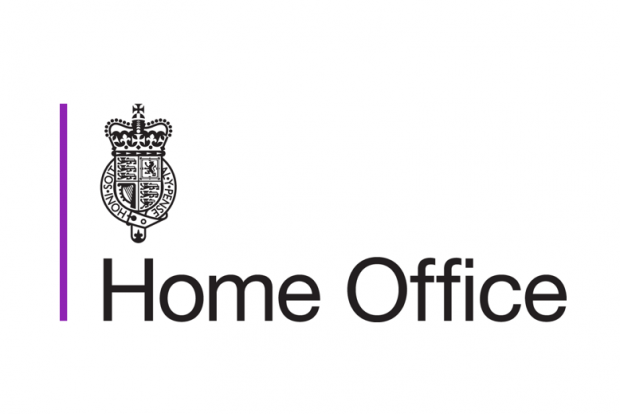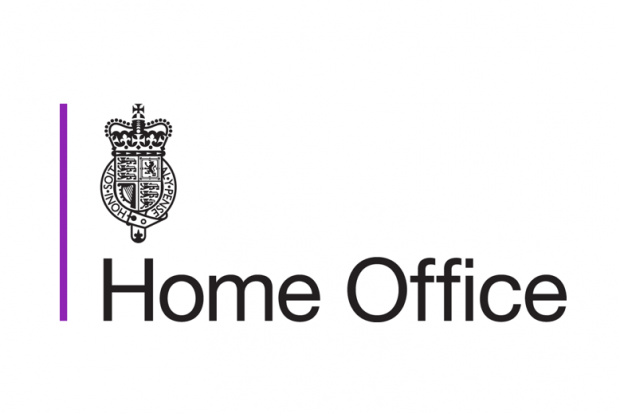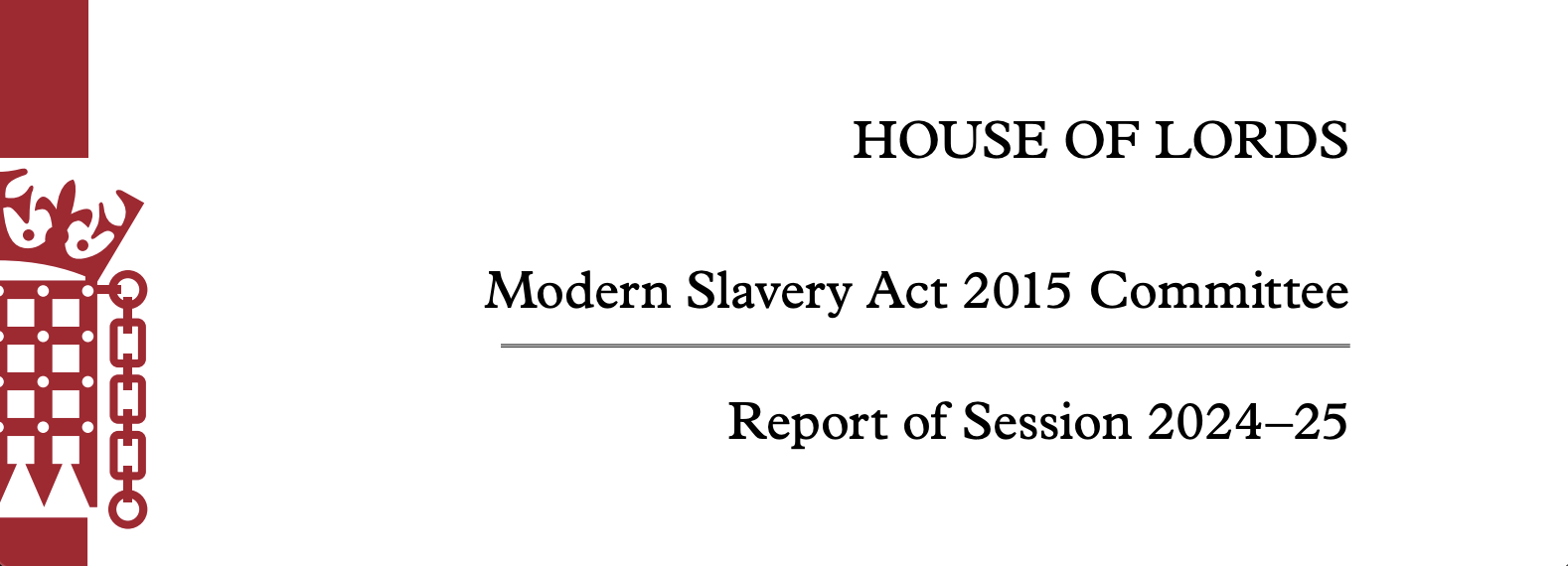HTMSE provides tailored courses covering a vast cross section of topics to a global network of professionals and stakeholders. Our online resources and publications provides educational material and information to professionals working in the counter human trafficking and modern slavery sector. Our training is provided my leading practitioners in their field.
Examples of training provided include:
- Expert Witness training
- Criminal law, forced criminality and non prosecution of victims of human trafficking
- Immigration and public law
- Housing and support
- Compensation claim for victims of human trafficking
- Modern slavery compliance and ethical supply chains for businesses
- Law enforcement
- Local Authority training
- Training for health care professionals
If you are interested in tailored training courses, please email us at info@humantraffickingexperts.com to discuss your training needs.

Results from the third quarter (July to September) of 2025 show an ever steeper upward trend in referrals to the National Referral Mechanism and the Duty to Notify process. Both statistics show record numbers of potential victims of modern slavery in the United Kingdom. Key results from the Home Office offical statistics are:
- 6,414 potential victims of modern slavery were referred to the Home Office from July to September 2025, representing a 13% increase compared to the previous quarter (5,689) and a 35% increase from July to September 2024 (4,752)
- the number of referrals received this quarter is the highest number of referrals received in a single quarter since the NRM began in 2009
- 81% (5,165) were sent to the Single Competent Authority (SCA) for consideration and 19% (1,249) to the Immigration Enforcement Competent Authority (IECA)
- the most common nationalities referred this quarter were UK (20%; 1,312), Eritrean (16%; 1,044) and Somali (10%; 662)
- this was the highest number of referrals for UK, Eritrean and Somali nationals in a quarter since the NRM began
- 112 disqualification requests were made this quarter, representing a 50% increase compared to the previous quarter (56)
- 6,470 reasonable grounds and 6,708 conclusive grounds decisions were issued this quarter; of these, 64% of reasonable grounds and 68% of conclusive grounds decisions were positive
- the number of conclusive grounds decisions issued this quarter was the highest in a quarter since the NRM began
- the number of cases awaiting a conclusive grounds decision continues to fall, with 9,107cases awaiting a decision at the end of September 2025, a reduction of 21% from the previous quarter (11,645) and a reduction of 69% from the peak at the end of 2022 (29,275)
- the average age of cases awaiting a conclusive grounds decision at the end of June 2025 was 141 days, as compared to 304 days at the end of the previous quarter
- the Home Office received 2,001 reports of adult potential victims via the DtN process, the highest in a single quarter since the DtN began
See the full Home Office report for offical statistics here.

Results from the second quarter (April-June) of 2025 show a continued upward trend in referrals to the National Referral Mechanism. This quarter exceeds the first quarter for record numbers. Key results from the Home Office offical statistics are:
- 5,690 potential victims of modern slavery were referred to the Home Office from April to June 2025, representing a 7% increase compared to the previous quarter (5,295) and a 32% increase from April to June 2024 (4,312)
- the number of referrals received this quarter is the highest number of referrals received in a single quarter since the NRM began in 2009
- 75% (4,251) were sent to the Single Competent Authority (SCA) for consideration and 25% (1,439) to the Immigration Enforcement Competent Authority (IECA)
- the most common nationalities referred this quarter were UK (23%; 1,286), Eritrean (11%; 641) and Vietnamese (11%; 599)
- this was the highest number of referrals for UK and Eritrean nationals in a quarter since the NRM began
- 5,895 reasonable grounds and 5,712 conclusive grounds decisions were issued this quarter; of these, 58% of reasonable grounds and 61% of conclusive grounds decisions were positive
- the number of conclusive grounds decisions issued this quarter was the second-highest in a quarter since the NRM began, second only to the record of the previous quarter
- the number of cases awaiting a conclusive grounds decision continues to fall, with 11,645 cases awaiting a decision at the end of June 2025, a reduction of 17% from the previous quarter (14,033) and a reduction of 60% from the peak at the end of 2022 (29,275)
- the average age of cases awaiting a conclusive grounds decision at the end of June 2025 was 304 days, as compared to 474 days at the end of the previous quarter
- the Home Office received 1,772 reports of adult potential victims via the DtN process, the second-highest in a quarter since the DtN began and behind only the record from October 2024 to December 2024 (1,800)
See the full Home Office report for offical statistics here.

After the highest recorded numbers of potential victims of modern slavery were referred to the National Referral Mechanism (NRM) in 2024, statistics from the first quarter in 2025 show this trend continuing. In 2024 there was an increase of 13% of referrals from 2023. Annually in 2024, 19,125 people were referred to the NRM.
This summary is pulled from the Home Office Official Statistics on Modern Slavery for the first quarter in 2025 (January to March). It includes key facts and findings regarding the numbers of potential victims of modern slavery referred into the NRM or via the Duty to Notify (DtN) process.
- 5,297 potential victims of modern slavery were referred to the Home Office from January to March 2025, representing a 4% decrease compared to the previous quarter (5,538) and a 17% increase from January to March 2024 (4,517)
- the number of referrals received this quarter is the second-highest since the NRM began in 2009, behind only the record in the previous quarter
- 72% (3,826) were sent to the Single Competent Authority (SCA) for consideration and 28% (1,471) to the Immigration Enforcement Competent Authority (IECA)
- the most common nationalities referred this quarter were UK (23%; 1,210), Vietnamese (12%; 645) and Eritrean (10%; 553)
- this was the highest number of referrals for UK and Vietnamese nationals in a quarter since the NRM began
- this was the first quarter since the start of the NRM data series in 2014 that Albanian nationals were not in the top 3 most referred nationalities
- 5,239 reasonable grounds and 5,833 conclusive grounds decisions were issued this quarter; of these, 53% of reasonable grounds and 58% of conclusive grounds decisions were positive
- the number of conclusive grounds decisions issued this quarter was the highest in a quarter since the NRM began, representing a 12% increase on the record in the previous quarter (5,253)
- the number of cases awaiting a conclusive grounds decision continues to fall, with 14,033 cases awaiting a decision at the end of March 2025, a reduction of 18% from the previous quarter (17,168) and a reduction of 52% from the peak at the end of 2022 (29,275)
- the average age of cases awaiting a conclusive grounds decision at the end of March 2025 was 460 days, as compared to 630 days at the end of the previous quarter
- the Home Office received 1,609 reports of adult potential victims via the DtN process, the second-highest in a quarter since the DtN began and behind only the record in the previous quarter (1,800)
See the full Home Office report here.

Statistics for the National Referral Mechanism in the UK, for fourth quarter in 2024 (October to December) includes a summary and breakdown of the number of potential victims of modern slavery referred into the (NRM) or via the Duty to Notify (DtN) process.
- 5,540 potential victims of modern slavery were referred to the Home Office from October to December 2024, representing a 17% increase compared to the previous quarter (4,755) and a 34% increase from October to December 2023 (4,131)
- the number of referrals received this quarter is the highest in a quarter since the NRM began in 2009, overtaking the record in the previous quarter
- the most common nationalities referred this quarter were UK (20%; 1,113), Eritrean (11%; 632) and Albanian (11%; 605)
- this was the highest number of referrals for Eritrean nationals since the NRM began, overtaking the record in the previous quarter
- 5,733 reasonable grounds and 5,243 conclusive grounds decisions were issued this quarter; of these, 49% of reasonable grounds and 61% of conclusive grounds decisions were positive
- there were 17,168 cases which have been issued a positive reasonable grounds decision and are awaiting a conclusive grounds decision, as of the end of December 2024
- the Home Office received 1,800 reports of adult potential victims via the DtN process, the highest in a quarter since the NRM began in 2015 and a 19% increase from the previous record in the period from July to September 2024 (1,501)
See the full Home Office report here.

The September 2024 House of Lords report ‘The Modern Slavery Act 2015: becoming world-leading again’ analyses the shortfalls of the UK’s modern slavery legislation in the current socio-political setting. There are approximately 130,000 victims of Modern slavery in the UK, in many industries including illegal drugs, prostitution, agriculture, and the care sector. Perpetrators of slavery continue to profit from victims without a serious risk of repercussions considering the proportion of prosecutions to National Referral Mechanism referrals is 1.8%. The UK Modern Slavery Act was deemed to be ‘world leading’ when it was passed in 2015. Now, nearly 10 years on, global factors have changed and best practice has moved on which needs to be reflected in the legislation.
Some key findings:
- Changes to immigration legislation has led to limited support and protection for victims
- Increase in recruitment of victims in the care sector resulting from relaxed visa rules and regulation of employers
- Need for a Single Enforcement Body to regulate and enforce workers rights
- Limited supporting legislation for requirements for companies to report on how they tackle modern slavery in supply chains, and practical implementation of compliance and enforcement
- Need for international cooperation to ensure due diligence and import bans on companies producing services and goods made with forced labour
- The vacant role of the Independent Anti-Slavery Commissioner for 18 months suggested modern slavery was not a policy priority, however there is the opportunity for the Government to take action and make the UK world-leading in the fight against modern slavery once again.
See the full report ‘The Modern Slavery Act 2015: becoming world-leading again’ here.


